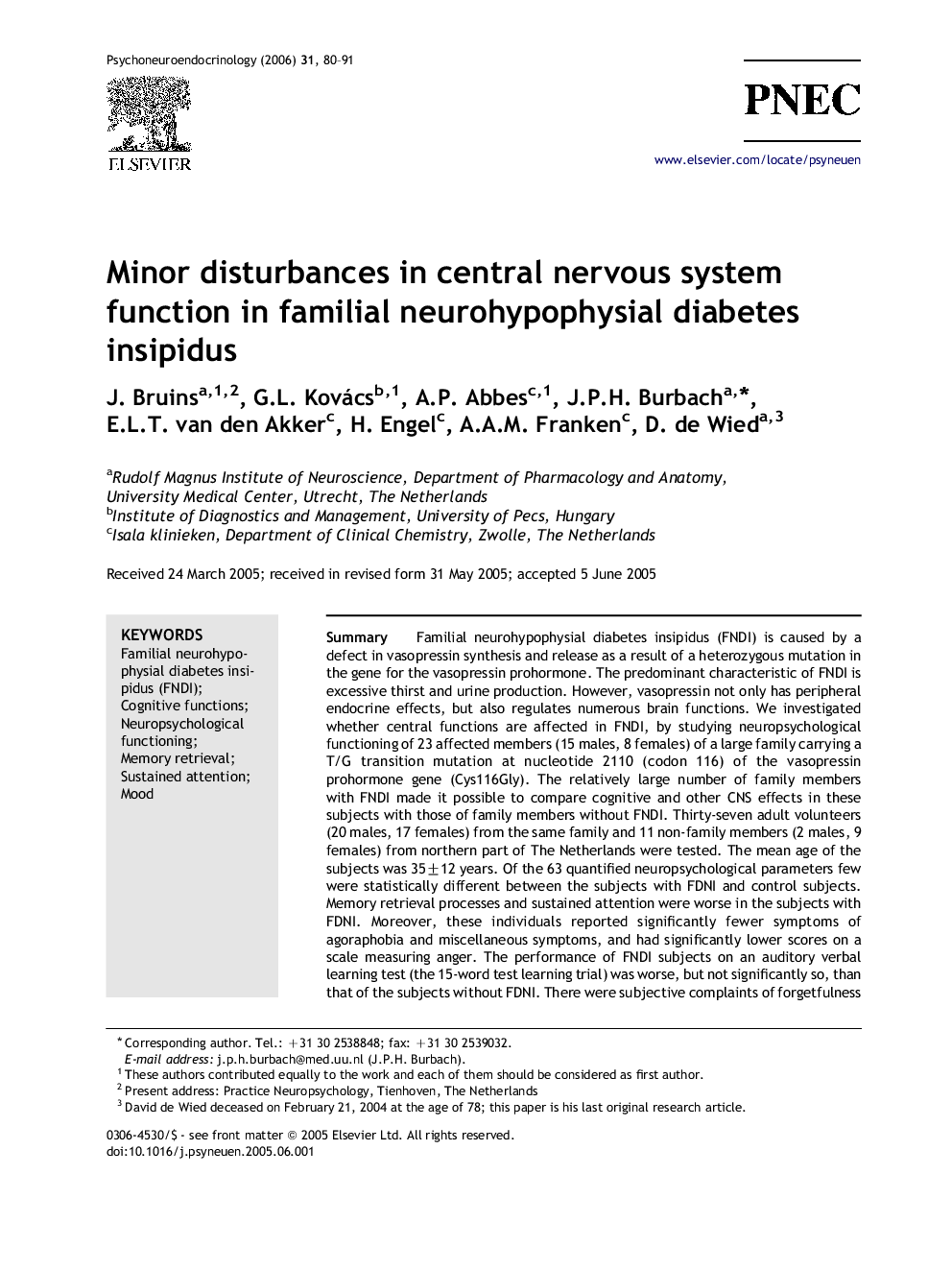| Article ID | Journal | Published Year | Pages | File Type |
|---|---|---|---|---|
| 337304 | Psychoneuroendocrinology | 2006 | 12 Pages |
SummaryFamilial neurohypophysial diabetes insipidus (FNDI) is caused by a defect in vasopressin synthesis and release as a result of a heterozygous mutation in the gene for the vasopressin prohormone. The predominant characteristic of FNDI is excessive thirst and urine production. However, vasopressin not only has peripheral endocrine effects, but also regulates numerous brain functions. We investigated whether central functions are affected in FNDI, by studying neuropsychological functioning of 23 affected members (15 males, 8 females) of a large family carrying a T/G transition mutation at nucleotide 2110 (codon 116) of the vasopressin prohormone gene (Cys116Gly). The relatively large number of family members with FNDI made it possible to compare cognitive and other CNS effects in these subjects with those of family members without FNDI. Thirty-seven adult volunteers (20 males, 17 females) from the same family and 11 non-family members (2 males, 9 females) from northern part of The Netherlands were tested. The mean age of the subjects was 35±12 years. Of the 63 quantified neuropsychological parameters few were statistically different between the subjects with FDNI and control subjects. Memory retrieval processes and sustained attention were worse in the subjects with FDNI. Moreover, these individuals reported significantly fewer symptoms of agoraphobia and miscellaneous symptoms, and had significantly lower scores on a scale measuring anger. The performance of FNDI subjects on an auditory verbal learning test (the 15-word test learning trial) was worse, but not significantly so, than that of the subjects without FDNI. There were subjective complaints of forgetfulness and slow recalls and those were observed in daily life by non-affected family members. These moderate differences in neuropsychological performance indicate that in human FNDI parvocellular vasopressin systems that supply the brain may be less affected or give no such serious disabilities, than the magnocellular hypothalamo-neurohypophysial system that provides vasopressin for endocrine regulation of water homeostasis.
